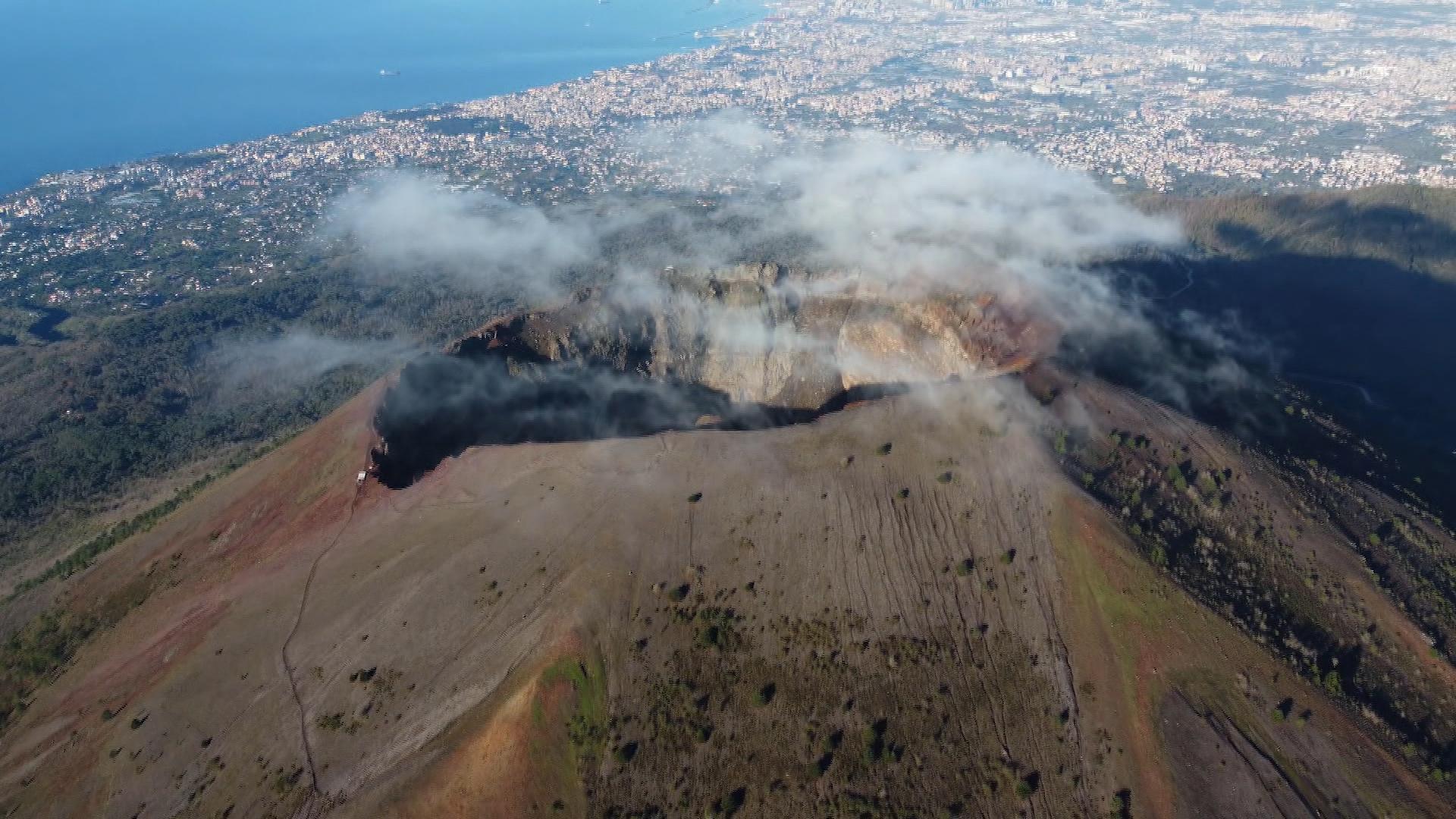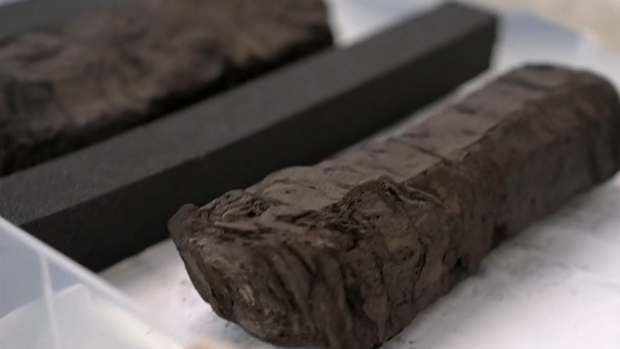AI is helping to solve an ancient mystery

Artificial intelligence is helping to solve an ancient mystery from the Roman Empire involving scrolls from a library that was buried when Mount Vesuvius erupted.
The eruption of Vesuvius in A.D. 79 not only wiped out Pompeii, but also the nearby town of Herculaneum.
Deep beneath the surface where a villa previously existed, archaeologists in the 18th century found 1,800 papyrus scrolls in the only ancient library in the world that is still intact. Attempts to unravel some of the scrolls ended in ashes as the library was carbonized, Brent Seales, a computer scientist from the University of Kentucky, explained.
"People didn't understand what they had. So, some scrolls were actually thrown away or burned and you can't put Humpty Dumpty back together again," Seales said.
 Archaeologists in the 18th century found papyrus scrolls in the only ancient library in the world that is still intact.
CBS News
Archaeologists in the 18th century found papyrus scrolls in the only ancient library in the world that is still intact.
CBS News
But thanks to 21st-century technology, experts are now able to examine those still intact.
That technology involved a particle accelerator in England. Scientists produced light that was 10 billion times brighter than the sun, much like an X-ray. AI was then used to identify ink, no matter how faint.
"I thought to myself, if you can use that technology to see non-invasively inside a human body, why can't we see everything inside an artifact like a scroll?" Seales said.
Deciphering the scroll
They still needed humans to decipher what the letters mean. So Seales launched the Vesuvius Challenge, a global competition offering $700,000 in prize money.
Three college students took it home, making history by being the first to extract words from a carbonized scroll, nearly 2,000 years old, that had been virtually unwrapped.
 Thanks to new technology, experts can examine the scrolls still intact.
CBS News
Thanks to new technology, experts can examine the scrolls still intact.
CBS News
With hundreds more scrolls to go, Seales has launched a second phase of the competition.
"With AI-inspired methods that are going to usher in, you know, new results that we've not dreamed of, I don't think renaissance is too strong a word," he said.
Seales said he believes there could be more scrolls out there as archaeologists are just beginning to scratch the surface.
"I believe the Villa of the Papyri, which has not been fully excavated, stands a really high chance of producing more books," he said. "So much remains for us to discover."
Chris Livesay is a CBS News foreign correspondent based in Rome.





.jpeg)



 English (US) ·
English (US) ·